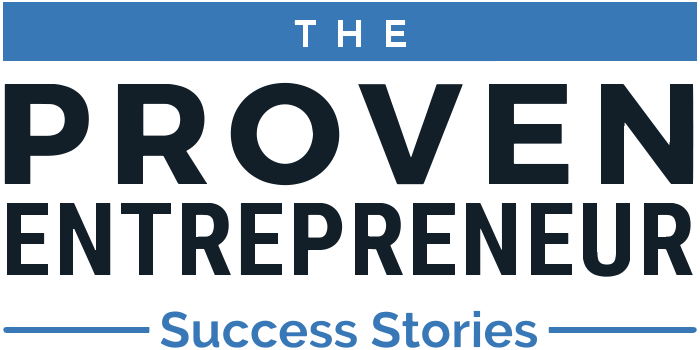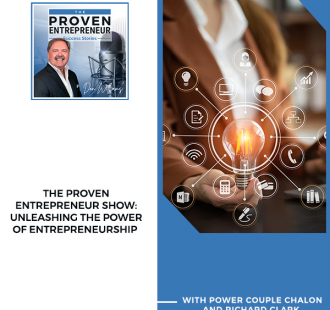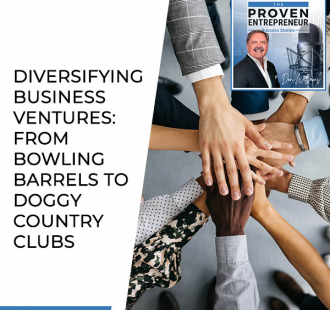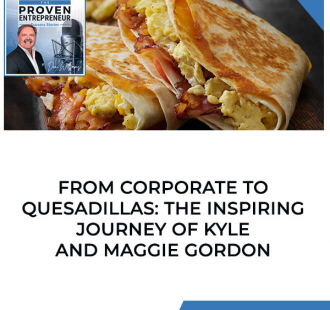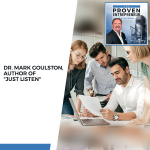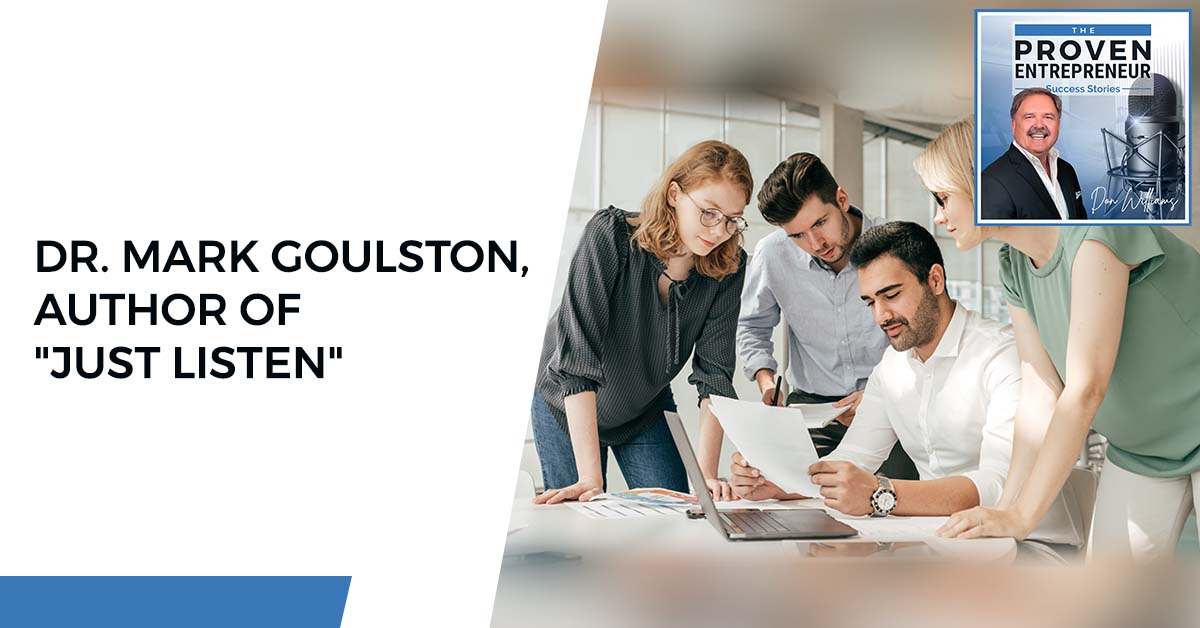
Hearing is innate to many humans, but listening is a skill we should master. Listening means you are paying attention to the speaker to understand deeply. In this episode, Dr. Mark Goulston, the author of Just Listen, provides insights on mastering the effective communication to persuade anyone. He provides some tips to help entrepreneurs persuade, negotiate, and sell. Lead with generosity that helps investors or other people become successful, and they will reciprocate it. Listen effectively. Tune in to this episode with Dr. Mark Goulston and learn the first make-or-break step in persuading anyone.
For information on how to work with Don visit Work With Don Williams
You can also reach out to Don Williams at https://donwilliamsglobal.com
Please join Don and his businesses in support of St. Jude’s Children Research Hospital in its Mission to cure Childhood Cancers. You can donate to St. Jude at stjude.org/donate
—
Watch the episode here
Dr. Mark Goulston, Author Of “Just Listen”
World’s Leading Listening Coach
I have a treat for you in this episode with Dr. Mark Goulston who’s the world’s leading listening coach and a leading thought leader. His book, Just Listen: Discover the Secret to Getting Through to Absolutely Anyone, became the top book on listing in the entire world and was chosen as the number two best communication skills book of all time by MostRecommendedBooks.com. He’s a former UCLA Professor of Psychiatry and an FBI and police hostage negotiation trainer. I’m in over my head.
He’s the host of a highly-ranked podcast, My Wakeup Call and the co-host of Hurt Less, Live More with JJ and Dr. Mark. He is also the Cofounder of 90 Second Mentor on LinkedIn. Please welcome my good friend, Dr. Mark Goulston. I’m going to take you back to young Mark at age five, which is about when our memories start to function well. 5 to 18 in the house where you were raised, I want to know, did someone set an example as an entrepreneur for you in your childhood?
Nobody set an example as an entrepreneur. My father was raised during the Depression. He had a job for life. He worked at a liquor distributing company outside Boston. He was there for about 35 years. My two older brothers worked for companies and I went to medical school. I had the mindset of working for something much bigger but something that I discovered is that I’m a square peg. Every time I tried to fit into a round hole, it didn’t work.
I wasn’t entirely rejected by the round holes. I’ve just occasionally flirted with being an A-hole because I hang out with entrepreneurs. Many of them do more than flirt with it but I like the heck out of them. What’s interesting is I always noticed the elephant in the room that people didn’t notice. I felt a little bit odd. I heard from another group of entrepreneurs that many entrepreneurs didn’t fit in growing up and the world tried to break their spirit frequently.
Sometimes telling them, “Why do you have to be different? What’s wrong with you?” They weren’t trying to be different. They just couldn’t fit into the round holes. We have tons of examples from Ted Turner to Richard Branson and Charles Schwab. They just didn’t fit in. Early on in life, what I discovered also about entrepreneurs is 1/3 became entrepreneurs to escape the depression of not fitting in.
When you first said, “I was a square peg,” the inside of me was going, “Yay, a brother.” Many entrepreneurs are square pegs. Outsiders view entrepreneurs as being entrepreneurial out of a profit motive but in my experience, that is a small percentage of the time. I’m resistant to authority. I could not find a good leader to follow. I’m like, “I’m done.” I’ll be my own leader, good, bad or ugly and that’s what led me to my path. Tell us a little bit about the book with this whole, “Be a great conversationalist by not talking, just listening.”
I’ll tell you about the book but I’ll also tell you about how to be more compelling than convincing. One of the problems I find with a lot of entrepreneurs is they get excited about their IP and technology and they’re passionate about it. However, when they go out, especially to investors, the investors could give two hoots about their great idea because they’re hearing great ideas all the time. A lot of times, entrepreneurs will be excited about their IP, whereas what they have to realize is whom they’re talking to.
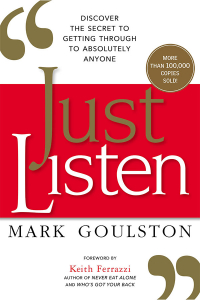
I’ve spoken in Moscow along with Daniel Kahneman who wrote Thinking, Fast and Slow. We were featured speakers and five of my books have done pretty well in Russia. Something that I’ve been trying to teach everyone since then and I’ve been doing talks to startup groups and accelerators is that underneath people listening to you, whether it’s 1-on-1 like you and me or 1-on-10 or 1-on-1,000, people are listening for something that they may not be conscious of.
I’ll give you an example of that with you and then I’ll give you the example that I give to startups who are pitching investors. You are checking boxes in terms of asking me good questions. “Tell us about your background and the book,” but underneath, “Tell me if this is what you’re listening for.” You hate to waste people’s time. You hate to waste your viewer and listeners’ time. Wasting their time is like nails on a chalkboard for you.
You’re always listening to guests that can give your listeners and viewers immediate value. By immediate, it needs to be relevant to what’s on their mind, helping them solve solutions that they haven’t been able to solve and giving them doable by them solutions so they don’t have to go out and buy books and take courses because many of them don’t have the time and they have too much ADHD to listen anyway.
You’re listening for people, I believe, who will honor the trust and confidence of your viewers who have short attention spans by giving them immediate value. You’re also listening for people who maybe you haven’t researched so much. They might have a bestselling book but they’re stiff. They are awful and you’re thinking to yourself, “I can’t broadcast this. I can’t post this. I have to protect my people from them.” Is any of that accurate?
Yes, it’s very accurate. I live in the world of easy, fast, smart and best. If it’s not easy, fast, smart and best, I am frustrated extremely so. I always live in that world. I believe that my mission is to help others help others. My goal for this show is to take non-entrepreneurs and encourage them to take an entrepreneurial step and to have entrepreneurs take another step by learning from exceptional proven entrepreneurs. I’m the Jiminy Cricket guide between my audience and guests like yourself.
Here are some tips for your audience that I hope will be practical. Your entrepreneur audience occasionally has to go out and get money from people who may not be that interested in their IP. If you’ve come up with IP that is going to change the world and it is obvious it’s going to change the world, be passionate about it and sell that but that’s less than 1%.
When I’ve been doing presentations to startups who need to get money, I say to them, “Do you ever start pitching to investors and after three slides, they smile and you think it’s a yes? It’s not a yes. Investors don’t smile, especially if you didn’t make a joke. It’s about money. They’re smiling because it’s a no and they’re thinking, ‘I’ve seen three slides. I don’t want to see it anymore. This person put a lot of work into this deck that I am not interested in and I don’t want them to catch me being rude so I’m going like this but it’s not a yes.’”
You need to have a few of those experiences and realize that at the end of it, you thought they’d throw money at you and they said, “I am interested. Send me a PDF or get out of my life.” They don’t say it that way. What you do if you’ve had this experience is stop yourself. Stop being so connected to your deck and say, “Can we stop for a second?”
They’re going to get nervous because you caught them not wanting to be rude to you and they go, “What?” “Can we pause for a second?” The jig is up and then you say, “When I started the presentation when we first met, you were listening for something and you didn’t hear it. In three slides, we got further away from what you were listening for and you’re smiling because you were thinking, ‘This is going to be a long deck to go through that I’m not interested in.’ Could you tell me what it is you were listening for? We might have it. It may be in the deck on slide 40 or it may not be but I can drop the slides. Tell me what you were listening for and if we have it, I’ll let you know.”
However, everybody in this world is networked. Here’s where you pivot from your closing a deal to building a customer for life. Here’s where you say, “Tell me what it is that you’re listening for and I’m guessing it’s something where you go back to someone above you and say, ‘I heard something and we got to throw as much money into it as quickly as possible.’”
You’re listening for a unicorn. “Tell me a little bit from your point of view about what unicorns look like. If you’ve ever brought one in or someone in your investment firm has done that, tell me all about that. I know a lot of people and companies. I won’t tell them that I’ve spoken to you but I might be able to introduce you to them. I’ll send you some little information about them. If it works out, you go invest in them. They love having your money. You will all take my call in the future because I focused on your success.”
One of the ways that I suggest living a long career is this is how you should live. You’re going to run into people who are reciprocators as opposed to takers. Stay away from the takers. That’s something I’ve learned in my long life. They’ll suck the life out of you. What you want to do is lead with generosity that helps those investors or other people be successful and helps the people that you might introduce to them be successful.
Lead with generosity that helps investors become successful, and they will reciprocate that to you. Click To TweetWhat happens is if you do this enough, they’re going to get together and say, “We got to find out how to make Mark successful. He made this happen for us. You want to go drill down what Mark’s selling or you want me to do it but he put this together for us.” I always lead with generosity. I’m a little bit older. I’m on the board of advisors of eight companies. They all say, “We’ve got to do something for you. All you focus on is getting successful.”
I say, “Send me the paperwork and I’ll throw it away because I don’t have a filing cabinet.” I downsized. I said, “You keep track of it. If it makes a lot of money, you can give me a little bit of money. I don’t care.” They say, “We mean it. If it makes money, you’ve done too much for us.” I say, “I trust you and I’m not going to ask you for it.” It’s built such goodwill. Some of them are flirting with doing very well but that’s how I recommend being in the world.
We’re like brothers from another mother. In my consulting practice, I have what we call the Client Defined Payment Form. It’s not a webpage that you go to and it says it’s $10,000 or $20,000. It’s a webpage where you go and you define the amount that you’re paying. I have clients whom I share in the win but I don’t look at their P&L and deposits. If I didn’t trust them, I wouldn’t do it. Everybody gives and takes but some people take a disproportionate amount of the time and those people should be avoided.
I have people who pay for services on a schedule that we’ve agreed to but it’s not. I don’t have a way to monitor and nor am I concerned with that. It’s amazing that when you associate with high-quality people, high-quality events happen. When you associate with people of less quality, fewer quality events happen. I’m a big believer in The Go-Giver book. I don’t think you can out-give the universe.
My mission is to help others help others. What I’ve found in many years of entrepreneurship are some wildly successful a couple of stinker years. It hasn’t all been great. You are probably the 150th interview on this little thing I started, which has blown up but many entrepreneurs are somewhat accidental and the best entrepreneurs are huge givers. Sometimes to the point that maybe somebody should advise them, “You could tap the break a little bit. You’re giving away everything and you probably shouldn’t.” The home team is the home team. There’s a spouse and there are kids or grandkids. Let’s keep in mind what we’re doing here.
They are a phenomenal group of misfits in the world and maybe solutions to all the big problems. The government is woefully inadequate at solving any problem on either side. I’m not picking a side but entrepreneurs are problem solvers and the world’s full of problems. You get some great minds aligned and people that’ll be authentic, which requires being vulnerable and taking a chance, not knowing the outcome and getting out of your comfort zone.
What most people find is that you’re far better, smarter and stronger than you think. That’s one of my favorite quotes out of all the great philosophers like Plato, Aristotle and Socrates. There was Christopher Robin and Winnie the Pooh. Christopher’s a wise young man because you are far better, smarter and stronger than you think.
I want to bring up a problem that entrepreneurs need to address before they partner with someone, hire someone or marry someone. Before you get into bed, figuratively or literally with someone, first of all, you need to be someone who has a high priority in identifying and then dealing efficiently and effectively with any conflicts.
That needs to be a high priority because conflicts will happen and I’ve seen too many companies be brought to their knees because someone great technically, someone who may be a little bit on the spectrum or an engineer is not good with conflict. They’ll either get angry or avoid it. It can bring a company to its knees. One of the things you want to hire or marry for is you need to be someone who makes that a high priority. You need to hire or marry someone who makes it a high priority.
If you’re not good with conflict and you avoid it and you are overly understanding of the other person, it’s going to build up. You’re going to gunny sack your frustration and it’s going to turn into resentment and burnout. You avoid coming into the office because you can’t stand to see this person that you’ve been so understanding with.
Find that out. Ask them. The way you bring it up is you could say, “Conflicts in life are inevitable, either between you and another person, two people that you’re supervising are in conflict or you in your head.” They’re inevitable. “Tell me about those conflicts you’ve had in life and give me some examples.” When they give you examples, find out the time it took between identifying it, thinking their way through it and then taking action.
“Please listen to me.” You might say, “That’s a psychiatrist talking.” It is part of that background but for many years, people came to me only because they had a conflict with another person. They had a conflict with their mind and impulses. What’s interesting is if you dedicate yourself to being good at this, you don’t have to like conflict.
I coach people that whenever a conflict happens, they get excited about it because they can grow and test their metal against it. I remember one of my friends was the CEO of Advanced Medical Optics and they made Blink ophthalmic solution. He discovered that it was hurting the corneas and on the same day that he heard that, he took it off the market. It was the biggest product.
I called Jim Mazzo and said, “Jim, I’m so proud that you did this.” He said, “Mark, I’m giddy with excitement.” I said, “What? You better close the door. What do you mean you’re giddy with excitement?” He said, “Mistakes and failures are unavoidable but every mistake and failure in my life has made me smarter and stronger in ways I couldn’t predict. I’m giddy because I know this will do the same for me. I don’t know what I’m going to look like on the other end, except I’m going to be better.” I thought, “What a great way to look at conflict, mistakes and failure.”

Here’s the other advice that I discovered. I’m a psychiatrist and during my career, we would sometimes put people on a 72-hour hold, which meant if they looked like they were going to be hurtful to themselves or someone else, we’d put them in a hospital where they couldn’t be. The best advice I’ve ever given myself was whenever something doesn’t go right or backfires, I say to myself, “Mark, put yourself on a 72-hour hold and don’t do anything to make it worse. Don’t drink, eat or yell at someone. Continue your routines.”
If I’m exercising, I exercise because what I discovered is about 80% of breakthroughs are preceded by breakdowns. That’s what psychedelics do. They break down your mind. What happens on the other end of it is you have breakthroughs. The problem is when you have a breakdown and you do something that makes you embarrassed or ashamed, you’re so busy feeling that but you will miss the breakthrough.
The potential for opportunity is outside of our comfort zones. Your friend was a master practitioner of gratitude. The person who could be grateful, not when things are going well but when things weren’t going well could find the bright side. The interesting thing about gratitude is the more you practice gratitude, the more grateful you become. The more grateful you become, the better things go and that’s the way it goes. Such wisdom to our readers. I want to encourage you that you can find Dr. Mark Goulston all over social media, several podcasts and his book, Just Listen. When Dr. Mark talks, I just listen. Dr. Mark Goulston, thank you so much for coming to the show.
The potential for opportunity is outside of our comfort zones. Click To TweetThank you for giving me a long leash because I took every inch of it.
You did great. I reserved the right to recall the witness at a future date for a future episode.
We can do that because I was an advisor to the prosecution in the O.J. Simpson trial, which taught me everything I know about dealing with difficult people. I had to confront F. Lee Bailey but that’s another story.
That’s another story for another day. Dr. Mark Goulston, thank you. That’s it for this episode.
Important Links
- Just Listen: Discover the Secret to Getting Through to Absolutely Anyone
- MostRecommendedBooks.com
- My Wakeup Call
- Hurt Less, Live More
- 90 Second Mentor – LinkedIn
- Thinking, Fast and Slow
- The Go-Giver
For information on how to work with Don visit Work With Don Williams
You can also reach out to Don Williams at https://donwilliamsglobal.com
Please join Don and his businesses in support of St. Jude’s Children Research Hospital in its Mission to cure Childhood Cancers. You can donate to St. Jude at stjude.org/donate
